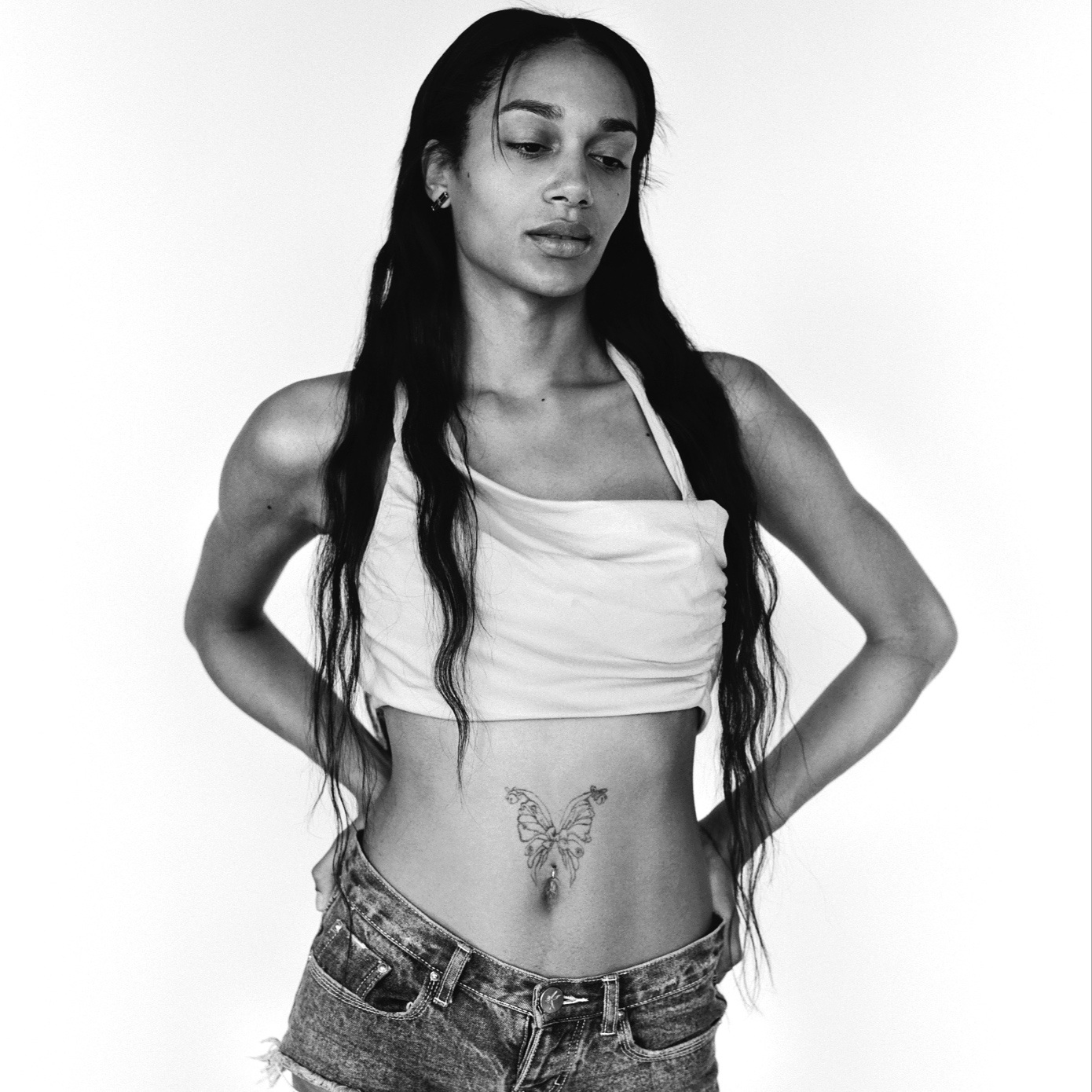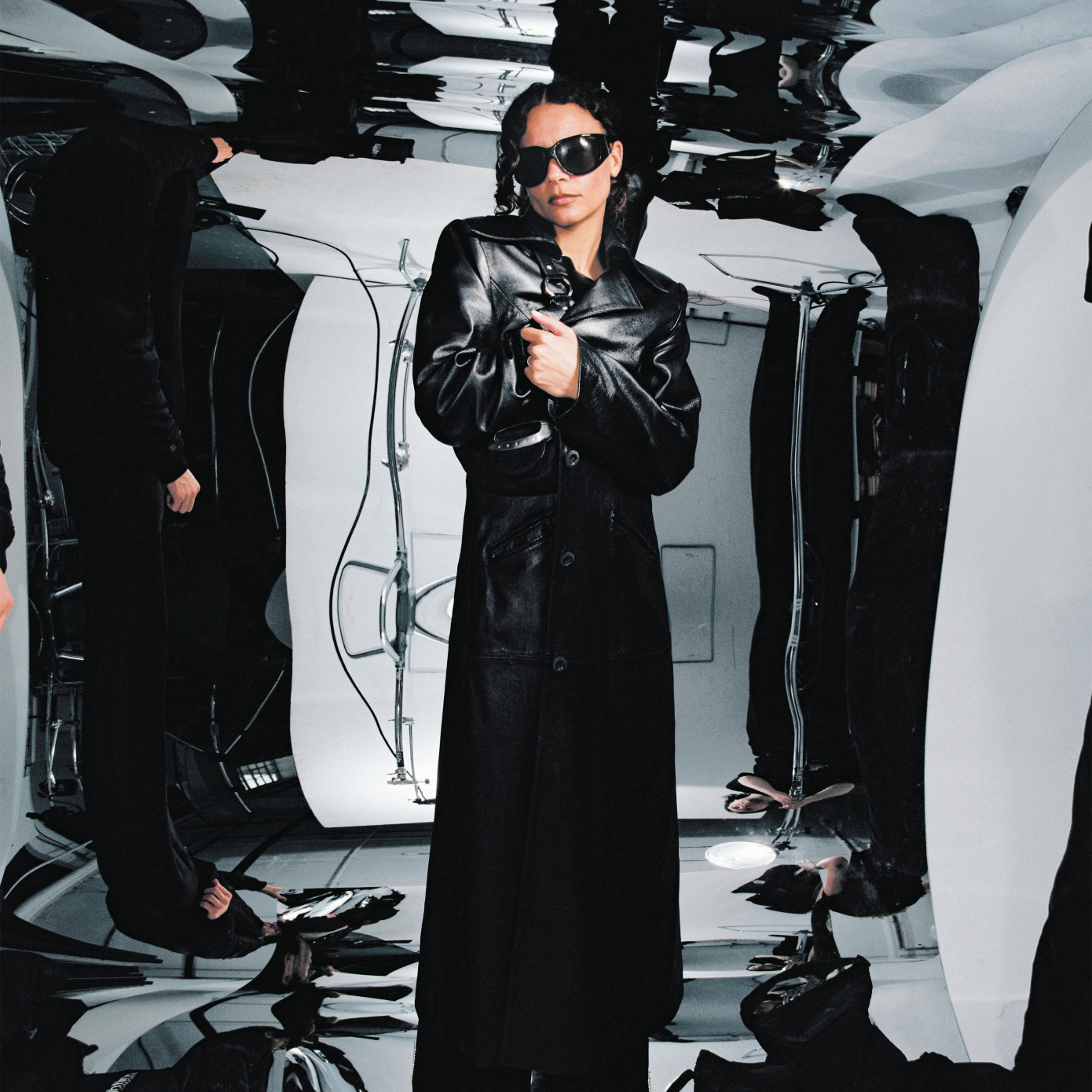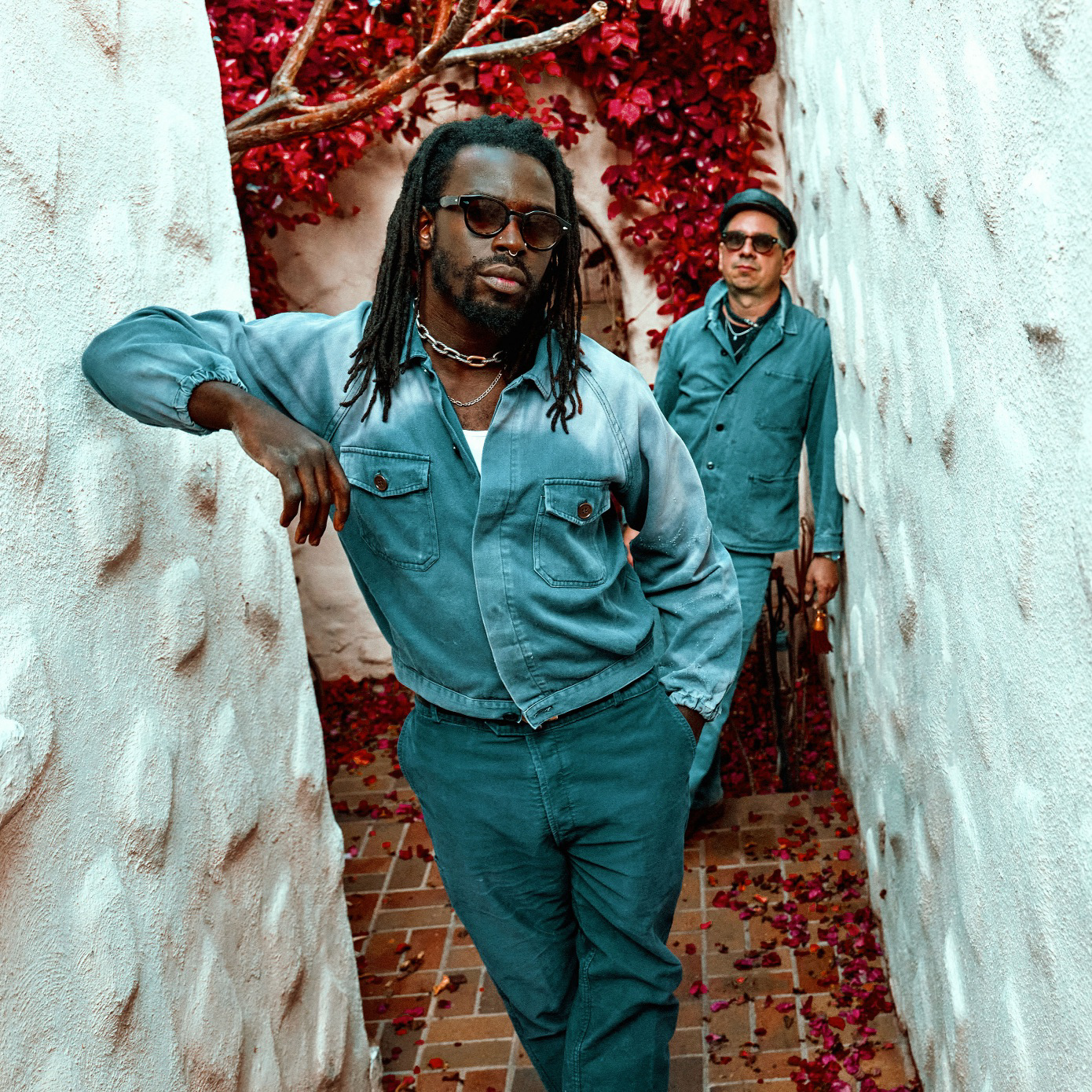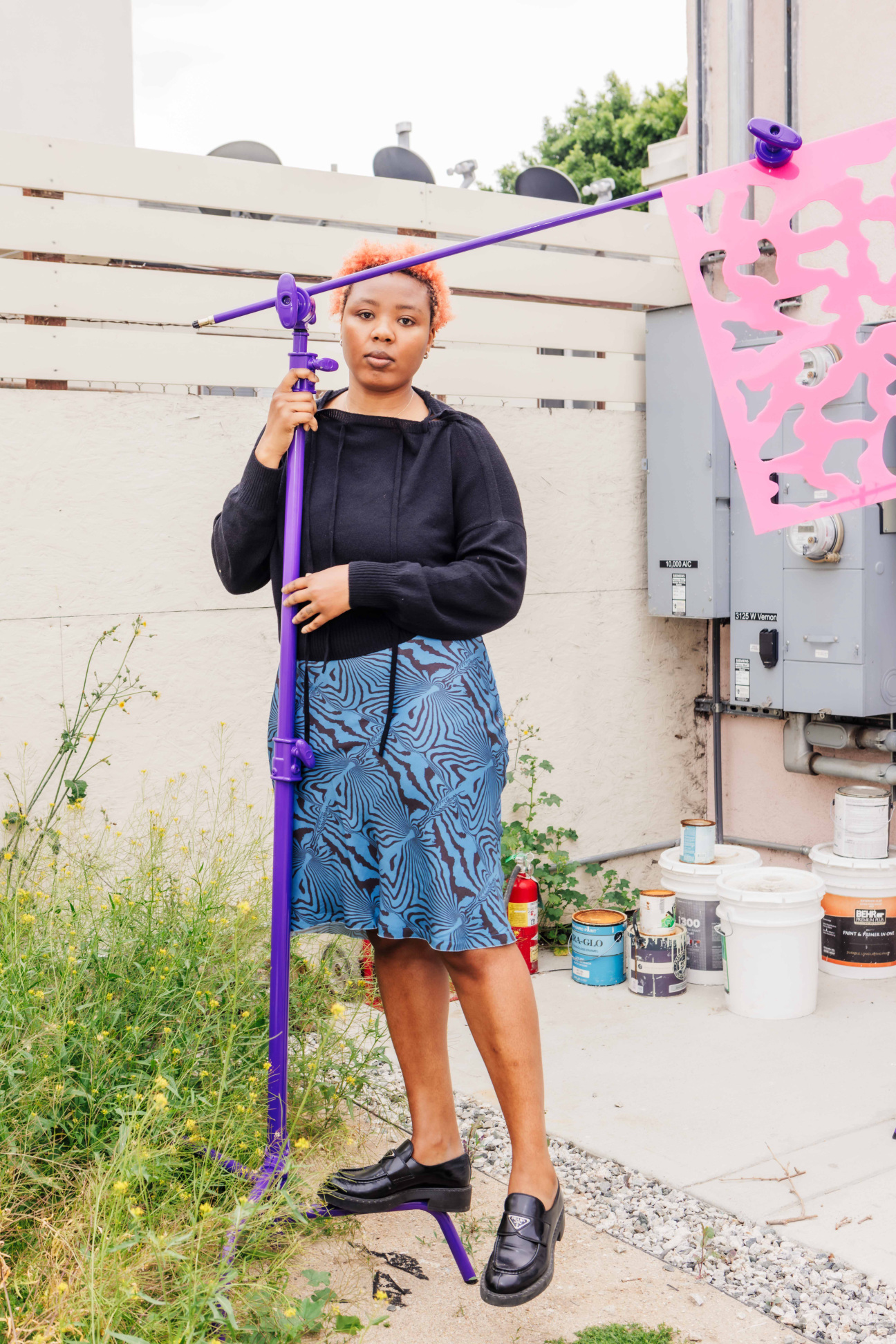
The African Desperate, Martine Syms’s 2022 feature film debut, rocked the art world with its incisive critique of creative institutions and their impenetrable vocabulary, its psychedelic mumblecore plot, and Diamond Stingily’s brilliantly deadpan delivery as lead character Palace Bryant. These elements were sewn together by a rabid fever dream of a score, hatched by Syms, composer-choreographer Colin Self, and Ben Babbitt. Though they only met a few years ago, Syms and Babbitt—who has worked with Angel Olsen, Weyes Blood, and How to Dress Well, and co-founded the video game Studio Cardboard Computer—have become close collaborators. The Los Angeles-based pair’s latest undertaking is the audio component of Syms’s first Sprüth Magers solo show, “Loser Back Home,” on view through August 26. Here, they dissect their fortuitous meeting, the connection between the human body and technology, and the creative potential of hanging out.
Martine Syms: Ben, I met you in the summer of 2021, but already knew your name. A Ben Babbitt figure had been in several of my dreams before I met you. So, it was a matter of time, right?
Ben Babbitt: We met and then you texted me a dream that you had.
Syms: Yeah, that’s how I got your phone number.
Babbitt: From your dream? That’s prophetic.
Syms: That’s how my dreams work. I’m pretty tapped, you know. During the time we were working on The African Desperate, we were also just playing music together, which was really fun.
Babbitt: It all felt very natural and not forced. When you, Colin [Self], and I worked on the score, we formed a little band, and it was really joyful. You’re one of the easiest people to work with. It was the perfect mixture of support, acceptance, encouragement, and challenge. You obviously have your vision. It’s very dialed and confident, but you’re also very open and not too control-freaky nitpicky.
Syms: Scoring is just fun; it’s really fluid. I was in hypnosis earlier, and one thing we were talking about was my energy. I like to play, have fun with what I’m doing, and feel open to discovery. The hypnotist reminded me that I often bring that sense of play to situations, which I forget sometimes.
Babbitt: That dynamic is hard to describe, but it feels like there’s a mutual reaching for something. It’s like feeling around in the dark.
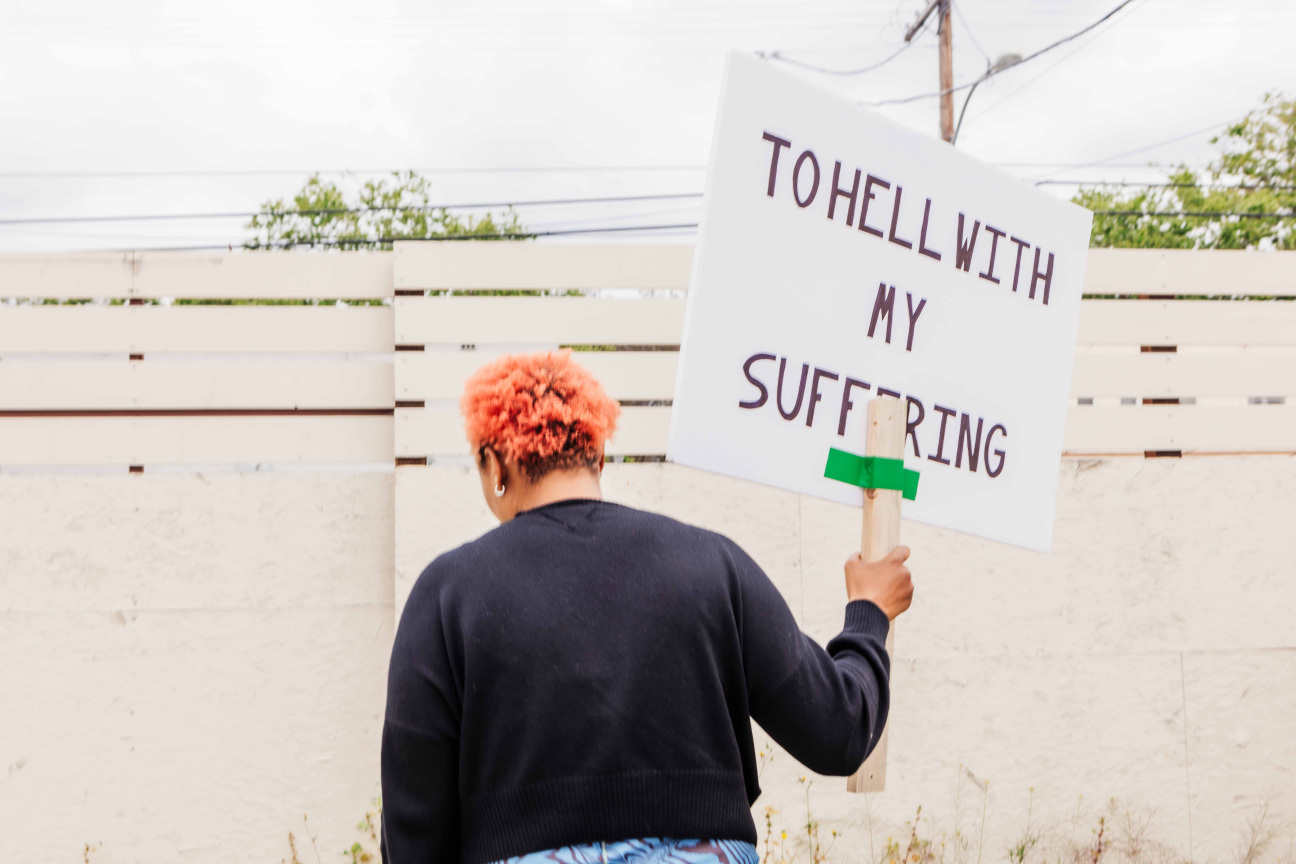
Syms: Definitely. It’s always funny to me when someone’s not into music. I don’t understand that—it’s so fundamental to my existence.
Babbitt: I can’t talk to a person who isn’t into music. I can’t be in the same room with a person like that.
Syms: You’ve been performing a lot lately—how is that experience different from recording?
Babbitt: Performing is like a hybrid of fixed, pre-composed stuff that I’ve spent tons of time on. But even if you’re playing something that’s fully baked, stuff still goes wrong onstage in front of an audience. Even just the way it feels, the vulnerability of being seen, I’m not really one of those people who feeds off that attention. When I’m performing, I wanna feel some kind of visceral catharsis, right? But at the same time, I have a laptop onstage with me, which can make me feel trapped—it’s a delicate environment where, if you flick the mouse wrong, you can fuck everything up.
Syms: For me, that’s where improvisation helps. I wanted to start doing shows where I share my computer screen but nothing is scripted, like, "Okay, I’m just going to tell a story using this digital portal of images and sounds without trying to make it perfect or using Keynote or anything." What was exciting to me about it was the improvisation—once I felt like I was doing the same things, it became much less interesting to me.
I took voice lessons from [Odeya Nini] for years, and before that I took yoga classes at her house three times a week. She would always talk about the voice, how you’re touching people with it, how you can envelop people with it. It’s like this weird fingerprint, because only you have your voice. I go in and out of wanting to use my voice in my work, but I think you can bring a lot of disparate elements together through your voice.
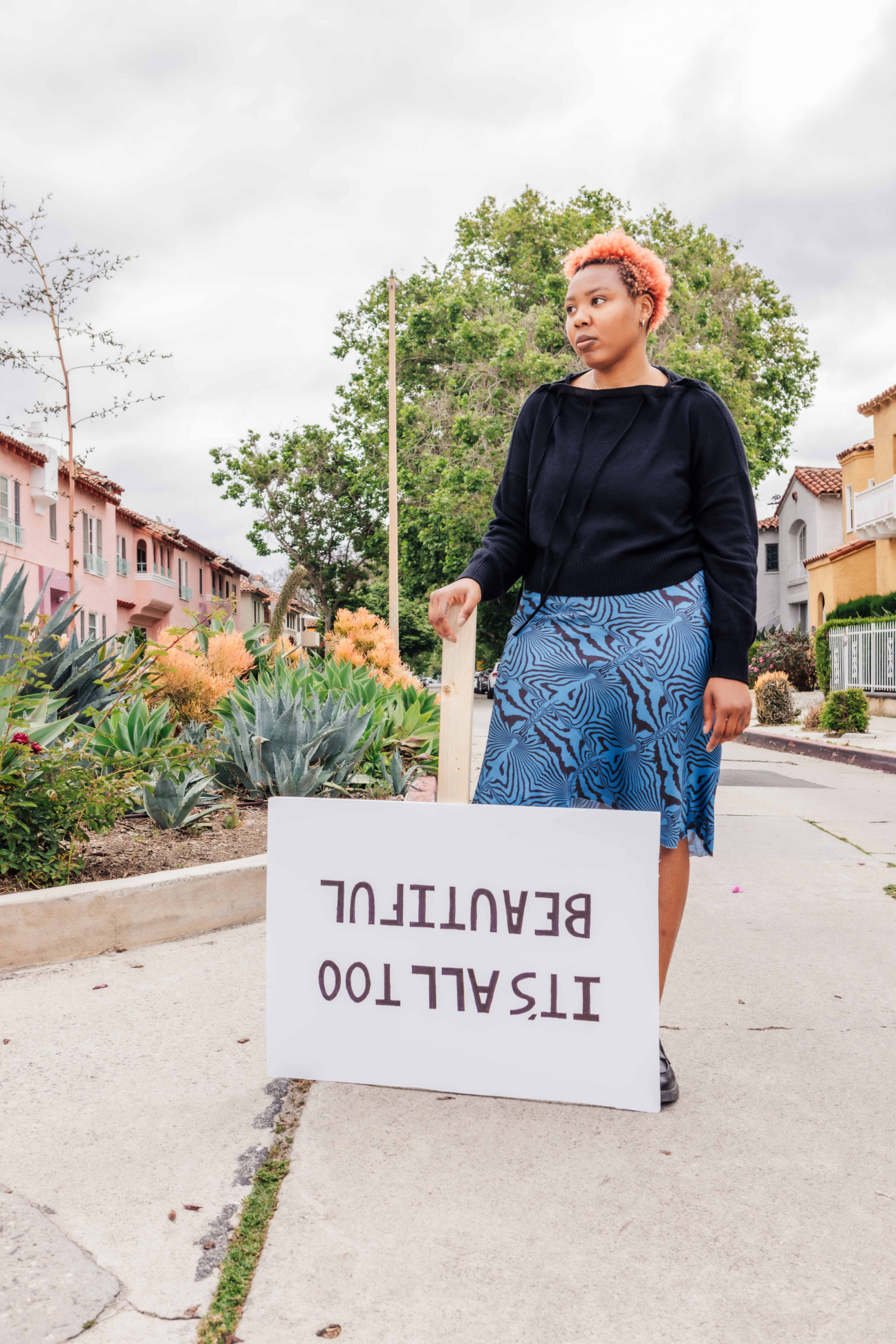
Babbitt: You made an A.I. model of your voice for one of your recent shows [“Neural Swamp / The Future Fields Commission,” 2021], and it’s really fascinating and uncanny. There’s something about making music now that cuts through a lot of the existential confusion I feel in response to the oncoming tidal wave of A.I., or whatever the fuck is happening. I still want to hear a human voice—as hippie or cheesy as that is to say.
Syms: I vocal tone every morning, so you can get as cheesy-hippie as you want.
Babbitt: In my early teens, I was drawn to people who were really in touch with the specificity of the human body and what it can do with technology—even really old technology, like a cello, for example. There’s an amazing, seamless melding of body and instrument. When you make music on the computer, it’s not that there aren’t stakes…
Syms: No, but the stakes are different when you’re making work with humans. Being with other humans is always anxiety-inducing and exciting to me, and I seek that out.
Babbitt: I’m gravitating toward that human element right now, even though I find it to be pretty uncomfortable. But it’s two sides of the same coin—the physical anxiety and vulnerability, and also the excitement and thrill and feeling yourself surviving it, and connecting.
Syms: That’s what I was thinking when you mentioned the melding of bodies and technologies. Like, the sound of an orchestra is very specific—it can only be achieved one way, and it sounds like nothing else. There’s also stuff that sounds like it came from a computer and could only come from a computer, and I’m equally interested in that—I want both of them. I recently started playing guitar again—sometimes I call it my “babe magnet,” because it just sits in my apartment and people are like, “Oh, you play guitar?”—but it’s true, an instrument has this pull to it.
Babbitt: I felt that way about painting in the past, because it’s not part of my work at all, and it’s not a screen. It’s a physical act that you can get lost in. The music for The African Desperate occupies an interesting place between fidelities. It doesn’t conform to the prescribed binary of, like, Is it hi-fi or lo-fi? Is it digital or analog? Is it performed or sampled? We went for this almost psychedelic melting and collapsing of all those categories in the same piece of work. Do you remember when we did the end credits song? You thought it sounded too shiny and flat, so we played the mix out loud and recorded it on my phone, then AirDropped it to my computer. We brought that into the session and fucked with it a bit.
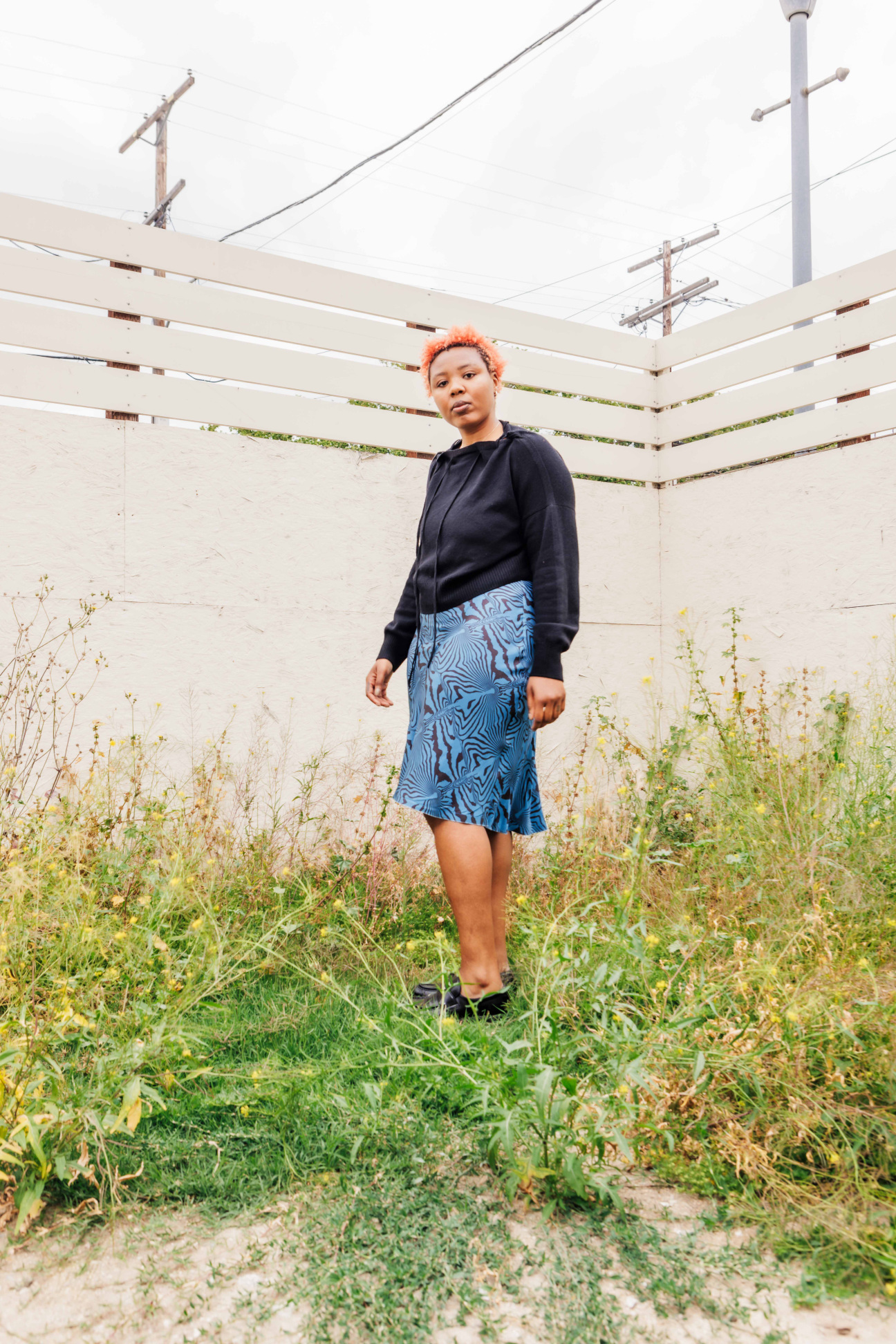
Syms: People really respond to that track. You can hear Colin and me in the background joking around and making noise. I’m gonna joke on myself by quoting Fred Moten and Stefano Harney. There’s one part in an interview [with Stevphen Shukaitis in The Undercommons: Fugitive Planning and Black Study, 2013], where they talk about the Marvin Gaye album What’s Going On, and the idea of when voices turn into music as an example of calling a class into session. They talk about teaching and how there’s a moment, as a teacher, when you have to shift tones and command people’s attention—but you also don’t want to do that too soon. You want everyone to chat and do their thing first. That idea, of the shift from one mode to the other, really stuck with me. That’s what I love about that recording.
Babbitt: That’s how it feels to work with you. Somehow you have the ability to make all the hanging out and fucking around part of the work.

